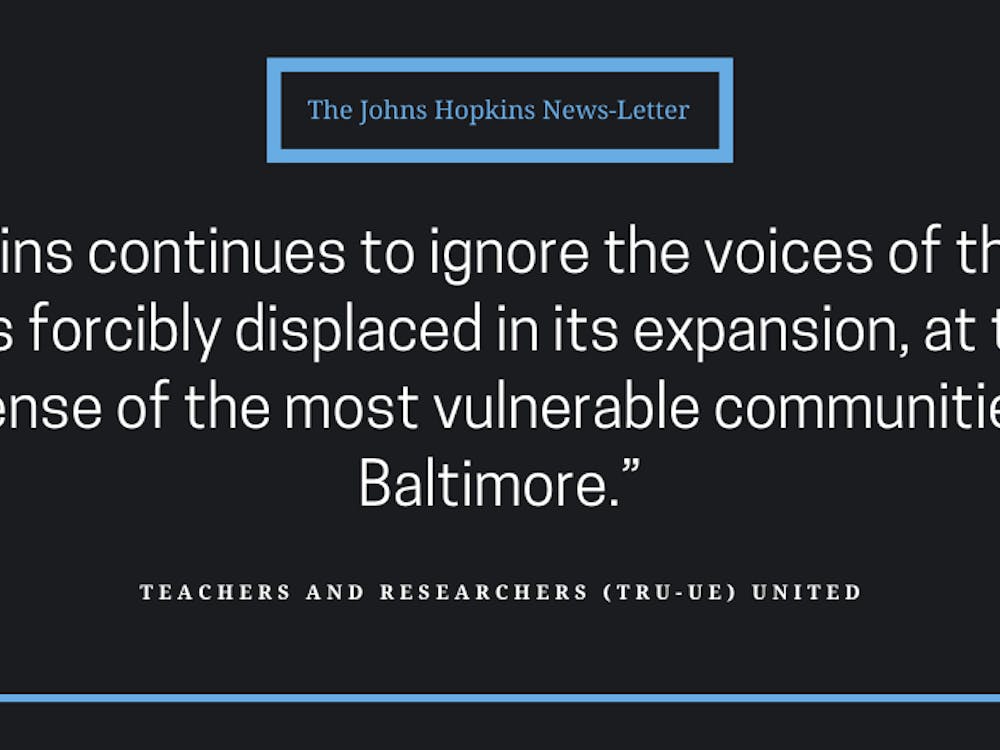As part of the first annual Frederick Douglass Lecture Series, author Kiese Laymon led a discussion and read a selection from his upcoming project about black youth and growing up in Mississippi on Feb. 23.
Laymon is a professor of English and African American Studies at the University of Mississippi and is also an associate professor of English at Vassar College. Specializing in creative writing, he is the author of the novel Long Division and a collection of essays, How to Slowly Kill Yourself and Others in America.
He began the lecture with a reading from one of his current projects, in which he recounts his experiences as a Mississippi middle-schooler in 1987. In this selection, he described the differences that he and his two friends felt as the few black students at a school called St. Richards, which vastly differed from their old school.
At St. Richards, the principal called him and a friend into his office to discuss his friend Jobari’s “unpleasant” odor, insisting that it was “gross” and he fix his smell. The principal’s comments stuck with Laymon.
“It wasn’t a part of where we were from, funky was not gross, stanky was not gross, f*cked up was not gross,” Laymon read. “Worse than any cuss word we could imagine, gross existed on the other side, way over there, far away from what we considered black and loving.”
After his reading, Laymon talked about what growing up in Mississippi meant to him, jokingly considering himself a Mississippi supremacist.
“You could make the argument that there are places across this world that are better, but I’m still going to make my argument that where I’m from is the best, because we created Richard Wright, because we created... American sense of morality, because we created American sense of rhythm and mood,” he said.
Though he considers it a privilege to be from Mississippi, he has an incredibly complicated relationship with it.
“On the surface, everyone is incredibly civil — we’re all brought up to be polite,” he said. “But we do other crazy sh*t, like trying to take away all funding from public schools, take away every single abortion clinic in the state except one, while still being kind and driving you to the post office if you need it and things like that.”
In his upcoming project, Laymon seeks to portray the ideas that his and his friends’ parents wanted to instill in the children in Mississippi.
For example, as a child, his concept of who President Ronald Reagan was came from living with his mother, a professor at Jackson State University and an active political organizer.
“I saw him as the physical manifestation with no nuance, of what my mother and grandmother thought was trying to do us in as black people in Mississippi,” he said. “For me and my family, he was the physical manifestation of devilishness.”
He then related the feelings that arose with Reagan’s presidency to his feelings now, particularly in relation to how Trump’s victory. While shocking to many, his win did not come as that big of a surprise to many black people in his community.
“The fact that white people loved to point out what Obama didn’t do for people, it made me think, oh, there’s room here for someone like Trump,” he said. “For one, there was going to be a reaction, because whenever there is a black victory, there’s always going to be a white backlash.”
Upon returning to Mississippi post-election, Laymon stated that he could now visibly see what underlying fear had existed in black communities for a long time.
“Trump brought to the forefront how unsafe we always were, but you just see it now a lot more explicitly,” he said.
Jessica Marie Johnson, an assistant professor in the department of history, admired Laymon’s ability to express the complexity of individual sentiments in his writing.
“[Laymon] writes so beautifully about the everyday violence of being young, black, in the South, in cities, in the U.S. in general,” Johnson said. “Some of the things he talks about can be defined as microaggressions, but he makes these things very immediate and makes it seem like there really aren’t many differences between big macro and these smaller micro feelings.”
Junior Michelle Yang, who attended the lecture, stressed the importance of holding discussions like this on campus.
“It’s events like these that promote perspective, which is super important right now in our country,” Yang said. “[Laymon] is such a good person to bring to campus, because he’s so real and easy to listen to.”






















Please note All comments are eligible for publication in The News-Letter.